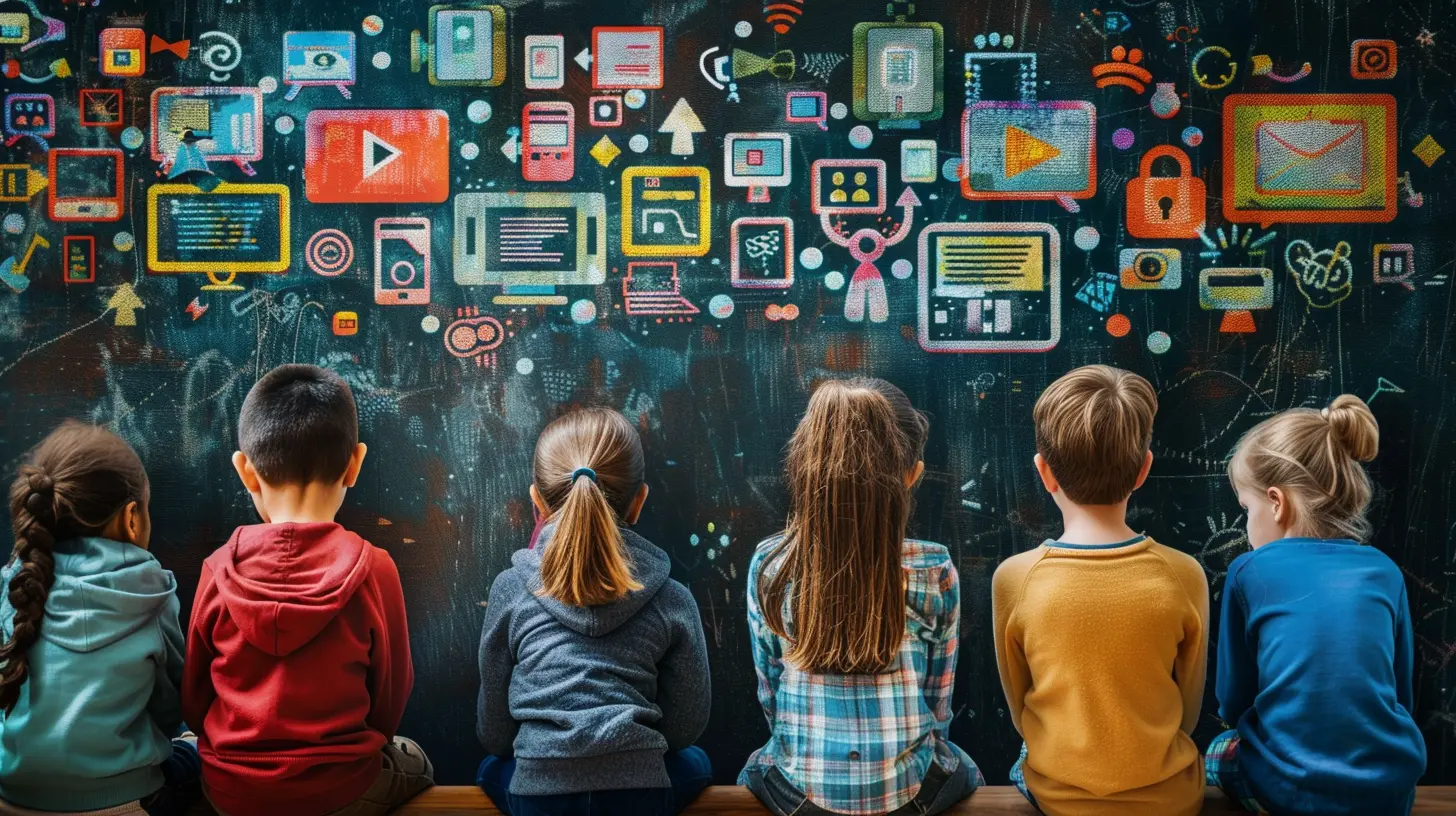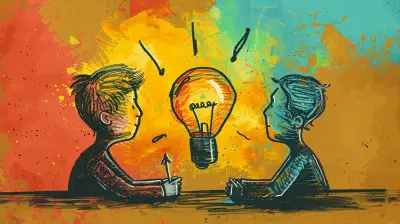How to Build a Media-Literate Society
21 November 2025
In today’s hyper-connected world, media is everywhere—on our phones, TVs, billboards, and even our smart fridges. But just because media is all around us doesn’t mean we automatically understand it. That’s where media literacy steps in. It’s not just a buzzword; it’s a survival skill in the digital age. So, how do we go about building a media-literate society? Let’s break it down, step by step.

What Is Media Literacy, Anyway?
Before we dive in, let’s make sure we’re on the same page. Media literacy is the ability to access, analyze, evaluate, create, and act using all forms of communication. It’s about understanding the messages we consume and produce—and knowing what’s behind them.Think of media literacy like learning how to swim. Sure, you can splash around in the shallow end, but if you want to dive into deeper waters (like online news, memes, ads, and social media), you need to know what you're doing. Otherwise, you risk drowning in misinformation.

Why Is Media Literacy So Important?
Let’s be real—most of us get our news from social media these days. While that’s convenient, it also opens the door to misinformation, fake news, propaganda, biased reporting, and even deepfakes. The internet doesn’t come with a filter; it comes with a firehose. So why is media literacy essential?- Critical Thinking: Being able to question the source, check for bias, and analyze the message is key.
- Informed Decisions: Whether it’s voting, shopping, or even choosing what to eat, media influences us. Knowing how to interpret it helps us make smarter choices.
- Civic Engagement: A media-literate population is more likely to engage in democratic processes and stand up against injustice.
- Digital Safety: From phishing emails to scams and cyberbullying, media literacy helps protect us online.

Step 1: Start with the Education System
If we want to make media literacy widespread, we’ve got to start young. The best place? Schools.Integrate Media Literacy Into the Curriculum
Media literacy shouldn’t be an optional module—it needs to be baked into daily learning. Teachers can weave media literacy into subjects like English, History, Social Studies, and even Science. Analyzing a news article in a social studies class or discussing advertisement strategies in a language class? That’s media literacy in action.Train the Teachers
Here’s the thing—teachers themselves need to be media literate first. Professional development programs should include tools and techniques for recognizing fake news, understanding digital content, and using media for active learning.Encourage Project-Based Learning
Instead of just talking about media, students should actually be creating it. When students publish blogs, make videos, or curate content, they actively learn how messages are shaped and delivered.
Step 2: Empower Parents and Guardians
Let’s face it—kids don’t just learn in school. The home is a critical space for developing media habits.Digital Parenting Workshops
Schools and communities can host media literacy workshops for parents. These sessions can cover things like social media safety, recognizing misinformation, and setting screen-time boundaries.Co-Viewing and Co-Reading
Encourage parents to watch shows or read news articles with their kids and discuss them. Questions like “Who made this?” or “What is the message here?” open up great discussions.Step 3: Use Technology the Right Way
Ironically, the very tech that spreads misinformation can also help combat it.Create and Promote Educational Platforms
Apps and websites that teach media literacy in fun, interactive ways can make a huge impact. Think gamified quizzes, short video lessons, or even TikTok-style explainers on how to spot fake news.Encourage Content Moderation Tools
Social media platforms should offer better fact-checking systems, flag questionable content, and provide easy access to source verification tools. While it’s not a magic fix, it definitely helps filter out the noise.Promote Algorithm Transparency
Opaque algorithms feed us content based on what keeps us scrolling. Transparency in how these algorithms work can help people understand how they’re being influenced—and why they see what they see.
Step 4: Involve the Media Industry
Yep, the media itself should be part of the solution. News outlets, advertisers, and content creators have big roles to play.Ethical Journalism
News organizations should double down on ethical practices—fact-checking, diverse sourcing, and clear distinctions between reporting and opinion.Media Literacy Campaigns
TV networks, radio stations, and even YouTubers can launch public awareness campaigns about media literacy. These can be short PSAs (public service announcements), sponsored content, or collaborations with influencers.Support Independent Journalism
Let’s not forget the importance of backing independent media. A diverse media landscape means more voices, more perspectives, and fewer chances for echo chambers.Step 5: Foster Critical Thinking and Curiosity
Building media literacy isn’t just about skills; it’s about mindset. We need to shift from passive consumption to active questioning.Ask the Right Questions
Simple questions can lead to big insights:- Who created this message?
- What’s being left out?
- Who benefits from this content?
- Is there another side to this story?
Recognize Bias and Perspective
No media is completely neutral. Helping people recognize bias—not just in others’ reporting but in their own perceptions—is crucial.Celebrate Diverse Voices
By promoting diverse media creators and outlets, we challenge dominant narratives and give more people a chance to see themselves in the media they consume.
Step 6: Make It a Lifelong Skill
Media literacy isn’t one-and-done. It’s a continuous journey. As technology evolves, so does media—and our understanding must evolve with it.Community Education Programs
Libraries, community centers, and even local governments can offer media literacy workshops and resources for all ages.Encourage Adult Learning
Just because someone’s over 50 doesn’t mean they should be left behind. Adult education programs should include digital and media literacy modules, especially for navigating online information safely.Stay Ahead of Trends
From deepfakes to AI-generated news, the future of media is full of twists. Keeping up-to-date with emerging tech helps us understand and address new threats to truth and transparency.Step 7: Build a Culture of Accountability and Mindfulness
Finally, building a media-literate society is about fostering a culture where people think before they share, question what they consume, and take responsibility for the content they create.Pause Before You Post
How often do we share an article without even reading it? A simple pause before hitting "share" can stop misinformation in its tracks.Fact-Checking Habits
Get comfortable with checking multiple sources. Use fact-checking websites like Snopes, PolitiFact, or FactCheck.org when uncertain.Be a Digital Role Model
Whether you're a teacher, parent, or social media user, show others what responsible media usage looks like. Your actions might influence more people than you think.
Final Thoughts
Building a media-literate society doesn't happen overnight, but it's absolutely possible. It's like planting a forest—you start with seeds (education, awareness, tools) and nurture them over time. Eventually, you get a strong, resilient ecosystem that thrives even in the face of storms.So, next time you're scrolling through your feed, watching a documentary, or reading an article, take a moment. Ask yourself: what's the message here? Who made it? And why?
That small pause might just be the most powerful tool in building a smarter, more media-literate world.
all images in this post were generated using AI tools
Category:
Media LiteracyAuthor:

Madeleine Newton
Discussion
rate this article
1 comments
Zealot Kim
Fostering media literacy is essential for critical thinking and informed citizenship. Empowering individuals to analyze and question information promotes a more discerning and engaged society.
November 24, 2025 at 4:24 AM

Madeleine Newton
Thank you for your insightful comment! I completely agree—media literacy is fundamental for fostering critical thinking and informed citizenship, ultimately leading to a more engaged and discerning society.


